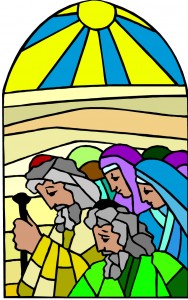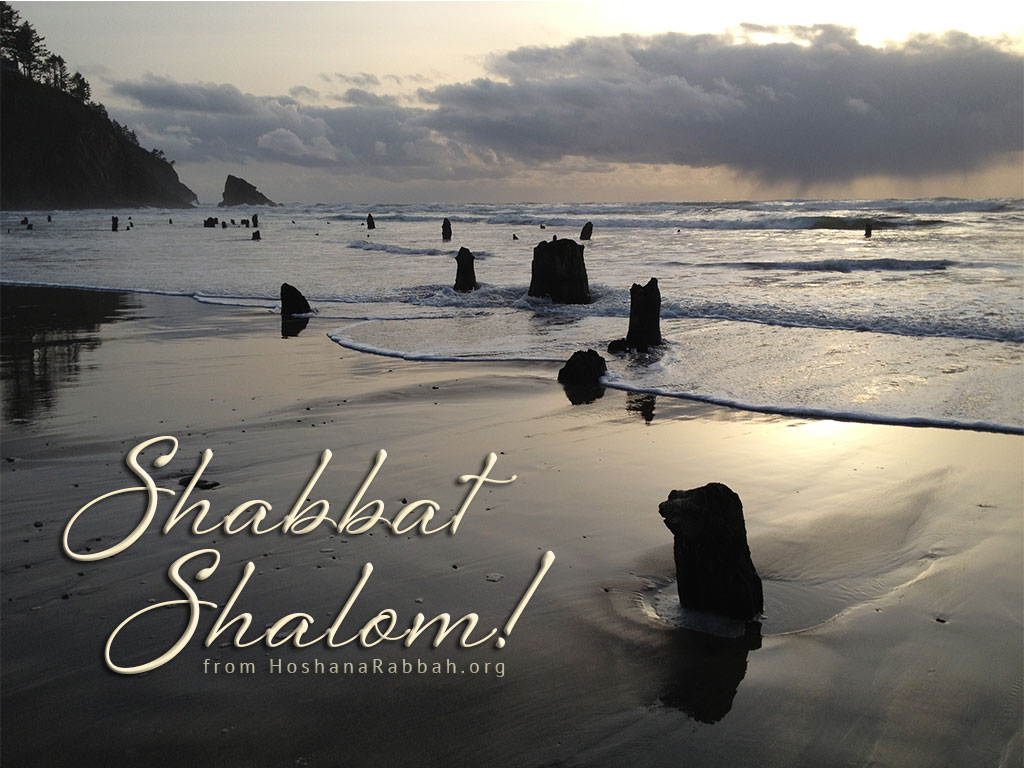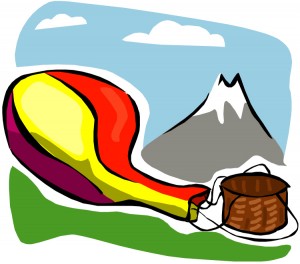Sometimes life’s circumstances leaves you feeling bitter. However, when we leave our bitterness at the cross of Yeshua, our physical and emotional healing comes and YHVH leads us to an oasis of blessing and provision. This video explains this process.
Tag Archives: Exodus
New Video: At the Red Sea? Have Faith!
The Key to Having Shabbat Shalom — Preparing!
Exodus 16:4–30, The Sabbath. This chapter chronicles YHVH’s efforts to literally force an irreverent, unruly and disobedient nation to keep the seventh day Sabbath. He did so in a most poignant way — through food and hunger. It’s as if he were instructing the stiff-necked and rebellious Israelites that if they refused to follow his Sabbath instructions, they would literally go hungry. “If you don’t obey me, you don’t eat.” This shows the gravity the Creator places on the Sabbath command.
Yet despite these clear instructions, most in the church today, like the rebellious children of Israel of old, refuse to obey YHVH’s clear instructions. Instead, they prefer to believe the doctrines of men proffered to them by their spiritual leaders that purport to invalidate the Sabbath command. Paul’s sage observation in Romans 8:7 describes the situation perfectly: “Because the carnal mind is enmity against Elohim: for it is not subject to the [Torah] law of Elohim, neither indeed can be.” In our day, the same question can still asked of followers of Yeshua that YHVH asked of the Israelites at that time, “How long do you reuse to keep my commandments and my laws?” (Exod 16:28).
This chapter is almost entirely dedicated to instructions pertaining to preparing for the Sabbath. This shows the priority that YHVH places on Sabbath observance for his people. Also note that these instructions are given many weeks before the giving of the Torah (law of Moses) at Mount Sinai. This is but one of many examples of YHVH giving the Torah-law to his people in one legal corpus before Mount Sinai.
Exodus 16:4, On the sixth day…prepare. (Also note verse 23.) The sixth day of the week was to be a day of preparation for the Sabbath, so that the Sabbath rest could be complete allowing for man to fully focus on being spiritually edified in the presence of his Creator without the distractions of food preparation and the other mundane duties of life.
A Song for Yeshua…Take That Pharaoh!
I’ve posted this comment before, but it’s such good stuff in Exodus 15 that I can’t help myself. We gotta share it again. I like scripture passage because it points so convincingly in a prophetic way to Yeshua the Messiah, who is our Savior, and who will deliver his people again from their enemies even as he did our forefathers from Pharaoh. So enjoy!
Exodus 15:1, This song. This Song of Moses may be more aptly titled, “The Song of the Redemption,” for it is a song about our Heavenly Redeemer, as we shall now discover.
I will sing. Will this Song of Moses be sung again in the future? In Revelation 15:3, we see that the glorified bride of Yeshua will be singing the Song of Moses. Why is she singing this joyous song? Because YHVH has delivered her from his judgments of wrath that he is pouring out upon a wicked end times world. These same redeemed Israelites are those whom YHVH has brought out of Babylon the Great as part of the second exodus of redeemed Israelites from the nations where they have been long scattered and spiritually enslaved. The Song of Moses here (in Rev 15:3) also relates to the Song of the Lamb. As we shall see next, the Song of Moses in Exodus 15 does relate to Yeshua the Lamb.
Exodus 15:2, The LORD [Heb. Yah]. Yah is the shortened form of YHVH. The verse goes on to say about this same Yah “that he has become my salvation [Heb. Yeshua].” It literally says that YHVH has become Yeshua! This is yet another Tanakh (OT) prophecy confirming the deity of Yeshua.
I will praise him. The KJV translates this phrase as “I will prepare him a habitation.” The ArtScroll Stone Edition Tanach has, “I will build him a sanctuary.” Couple this with verse 17, which speaks of “the sanctuary [Heb. miqdash],” which YHVH has made for his dwelling, and we have a solid reference to the Tabernacle of Moses, which YHVH instructed the Israelites to build, so that he could dwell among them (Exod 25:8), and commune with them (verse 22). What’s more, everything in the tabernacle pointed to Yeshua, the salvation of YHVH, and to his death on the cross to redeem man from sin and bring him into close communion with the Father in heaven!
Exodus 15:6,12, Your right hand. Three times this phrase is found in the Song of Moses. Who is the outstretched arm or YHVH? It is Yeshua (Isa 53:1 cp. Isa 52:10; 40:10; Ezek 20:34–35) who is presently at the right hand of Elohim (e.g., Rom 8:34; Col 3:1; etc.).
Exodus 15:12, The earth swallowed them. Even as the earth (or seas) swallowed up Pharaoh (a picture of Satan) who was attempting to destroy YHVH redeemed people, the earth will come to the rescue of the end times saints who have fled into the wilderness after leaving the Babylon the Great world system (Rev 12:16).
The First and Second Exoduses Compared
Understanding the Second Exodus
The concept of the Messianic Age in Hebraic thought involves an understanding of the first and final redemptions, which are two separate events. The first redemption or first exodus occurred when the Israelites obeyed the Word of Elohim and placed the blood of the lamb on the door posts of their homes resulting in YHVH delivering them out of Egypt. It is understood by redeemed believers that Israel’s exodus from Egypt was prototypical of the one’s placing their faith in Yeshua (the Lamb of Elohim) who redeems them from sin’s death grip through his shed blood at the cross, and then leads them out of their spiritual Egypt of sin and worldliness toward the promised land of a new spiritual life in Messiah Yeshua.
 By contrast, the final redemption or second exodus is a series of events that will occur at the end of the age prior to the return of Messiah Yeshua at the beginning of the Messianic Age (or Millennium).
By contrast, the final redemption or second exodus is a series of events that will occur at the end of the age prior to the return of Messiah Yeshua at the beginning of the Messianic Age (or Millennium).
For those who have placed saving faith in Yeshua the Messiah, at the final redemption, the redeemed believers will receive their spiritual or glorified bodies at the resurrection of the dead, which occurs at the second coming of Yeshua. After that, they will rule and reign with Yeshua for a thousand years during the Messianic Age.
Now let’s explore some of the biblical prophecies that pertain to the second exodus.
Isaiah 11:10–12:6
Although consisting of two chapters, this passage of the Scriptures is part of the same prophecy and speaks about the coming of Messiah, and the regathering of the outcasts of Israel from the nations to which they have been scattered. Below is a list of the salient points that pertain to the second exodus along with my commentary. Continue reading
Let YHVH Deflate You … for Good!
Exodus 13:3, Went out of Egypt…no leavened bread. What is the spiritual connection between coming out of Egypt and the memorial (v. 9) of eating unleavened flat bread?
The keeping of the Feast of Unleavened Bread and the command to eat flat bread was to be an object lesson for successive generations Israelites as a sign and a memorial of what YHVH did against Egypt and of Israel’s deliverance (vv. 8–9). As the strong right arm of YHVH’s judgments (v. 3) pressed down upon proud and exalted Egypt until it was flattened as a nation, even so, YHVH’s judgment against the sin and idolatry in our lives demands that we become flattened, deleavened and contrite before him. He desires to squeeze or press out of us all the leaven of sin and pride that we have inherited from spiritual Egypt.
In the Scriptures, since leavening puffs up and sours bread, it is a biblical metaphor for sin, which does the same to the human heart and mind. It causes bitterness, pride, insincerity, hypocrisy and giving rise to false teachings and doctrines of men. We must put out the leaven of sin from our lives and from our spiritual assemblies, as Paul admonishes. The Feast of Unleavened Bread pictures this process. The saints are to keep the feast not with the old leaven of malice and wickedness, but with the unleavened bread of sincerity and truth (i.e., the Torah, 1 Cor 5:8, read vv. 1–11 for context).
One People One Law
Exodus 12: 49, One law. (Other “one law passages include Lev 24:22; Num 9:14; 15:16, 29). The context of this verse regards the observance of Passover (also Num 9:14). There was only to be one law pertaining to the observance of Passover for both the native Israelite and for the stranger who sojourns with the Israelite.
Leviticus 24:22 says that there is one law for the Israelite and the stranger in the areas of blasphemy, murder, slaying another man’s animal and harming one’s neighbor in any way.
Pertaining to the law about the various offerings for sin (i.e, despising the instructions or Torah of Elohim, verse 31), Numbers 15:15–16 and 29 states there is one law for both the Israelite and the sojourner forever throughout their generations.
Some will say that these “one Torah for everyone” passages pertain only to the specific Torah laws mentioned in these passages. This interpretation seems to be a strain, since, as noted above, the Leviticus 24 passage seems to include all of Torah. Furthermore, in numerous places, Israel was to take the Torah (the whole Torah) to the nations of the world, not just parts of the Torah (e.g., Deut 4:6–8; Isa 60:1–3; Zech 8:22–23; Matt 28:18–20; Luke 24:47), and that during the Messianic Age, the Torah will go forth to all the nations (Isa 2:3; Mic 4:2). So the Torah is not just for Israel only, but ultimately was to be for all the peoples of the earth.





